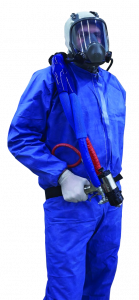
Common Applicator Problems: SNAKES!
Copperhead Snakes in Crawl Spaces
 Dealing with poisonous snakes in crawl spaces is entirely too common for spray foam and polyurea applicators in the south. Snakes can get into the smallest holes, rifts, and spaces, so you should always check to see that those areas are tightly sealed. Some people use caulk for patching; nevertheless, caulk breaks down over time, and it may not be easy to apply it in hard-to-reach areas fully. Spray foam is a better option for precise sealing and a long-lasting fix. Spray foam’s expanding ability gets the foam into the tiniest cracks and other places where sealing is needed.
Dealing with poisonous snakes in crawl spaces is entirely too common for spray foam and polyurea applicators in the south. Snakes can get into the smallest holes, rifts, and spaces, so you should always check to see that those areas are tightly sealed. Some people use caulk for patching; nevertheless, caulk breaks down over time, and it may not be easy to apply it in hard-to-reach areas fully. Spray foam is a better option for precise sealing and a long-lasting fix. Spray foam’s expanding ability gets the foam into the tiniest cracks and other places where sealing is needed.
Homeowners can take steps to deter snakes around their homes by removing the snake’s food sources. Birdseed, dropped from bird feeders, attracts mice and rodents, a food source for snakes. Mulch can provide a moist habitat and a food source for snakes because it invites insects and other small creatures. Raking up piles of mulch will help deter snakes. Some homeowners use mothballs to rid themselves of snakes; however, this has not been scientifically proven effective.
One means of capturing snakes in crawl spaces, under porches, decks, and other hard-to-reach areas is to use a glue board. Once the snake is trapped, use a shovel to remove the glue board with the entrapped snake and move it far away from home. Pouring vegetable oil over the glue board can allow the snake to free itself. It may seem counterintuitive to free the snake, but snakes perform a good service by eating mice, rodents, and insects.
Snake handling devices, such as snake tongs, snake hooks, and a strike-proof snake bag to hold the snakes, can be used. Notwithstanding, it is prudent to train this type of work and know-how to identify various snake species. If you are uncertain, call a professional.
Working in Crawl Spaces is not for the Faint of Heart.
Unfortunately, most homeowners are unaware that snakes are lurking in their crawl spaces; therefore, the companies that work in those spaces often get a nasty surprise. While snakes are good at ridding us of mice, rodents, and insects, the nasty venomous ones can pose a problem for those who work in dark, damp crawl spaces. While professional extermination services, snake traps, and an array of deterrent products are available, it takes time to make this happen. Crawl space workers usually don’t have time to wait out a snake, though unless you’re an expert snake handler, it may be in everyone’s best interest to contact a professional exterminator and have the snakes removed from the area before doing any work.
Be Prepared
Home inspection organizations recommend wearing knee pads, gloves, a Tyvek polyethylene suit, goggles, hard hat, respirator with a HEPA filter, and carrying a flashlight as well as a cell phone with you. Snakes and other critters can bite through bags as well as a Tyvek suit, so wearing a hazmat suit may be a better alternative. Keep in mind that some snakes can bite through leather, canvas, and denim. The highest number of snake bites usually occur on the hands and arms. Good light for crawl spaces is fundamental. This way, an inspection of the crawl space can assess possible concerns, such as architectural integrity, leaks, electrical wirework, chemicals, animal droppings, and critters.
What to Do in Case of a Snake Bite
In the event of a snake bite, apply pressure to the bitten area and apply an immobilization compress. Stay calm and do as much as is feasible. Getting over-excited will cause blood to flow throughout the body more quickly, making the problem more serious. Do not wash the bite area or apply ice. Any venom residue left on the skin can help medical staff identify the snake species. Do not apply a tourniquet, cut into the wound, or try to suck out the venom. The human mouth is full of bacteria that can cause infection. Time means everything. Call 911 or your local crisis number and get help immediately. It’s always better to be safe than sorry. Crawl space workers deserve the utmost respect and admiration. It’s a dirty and potentially dangerous job, often with numerous risks.






